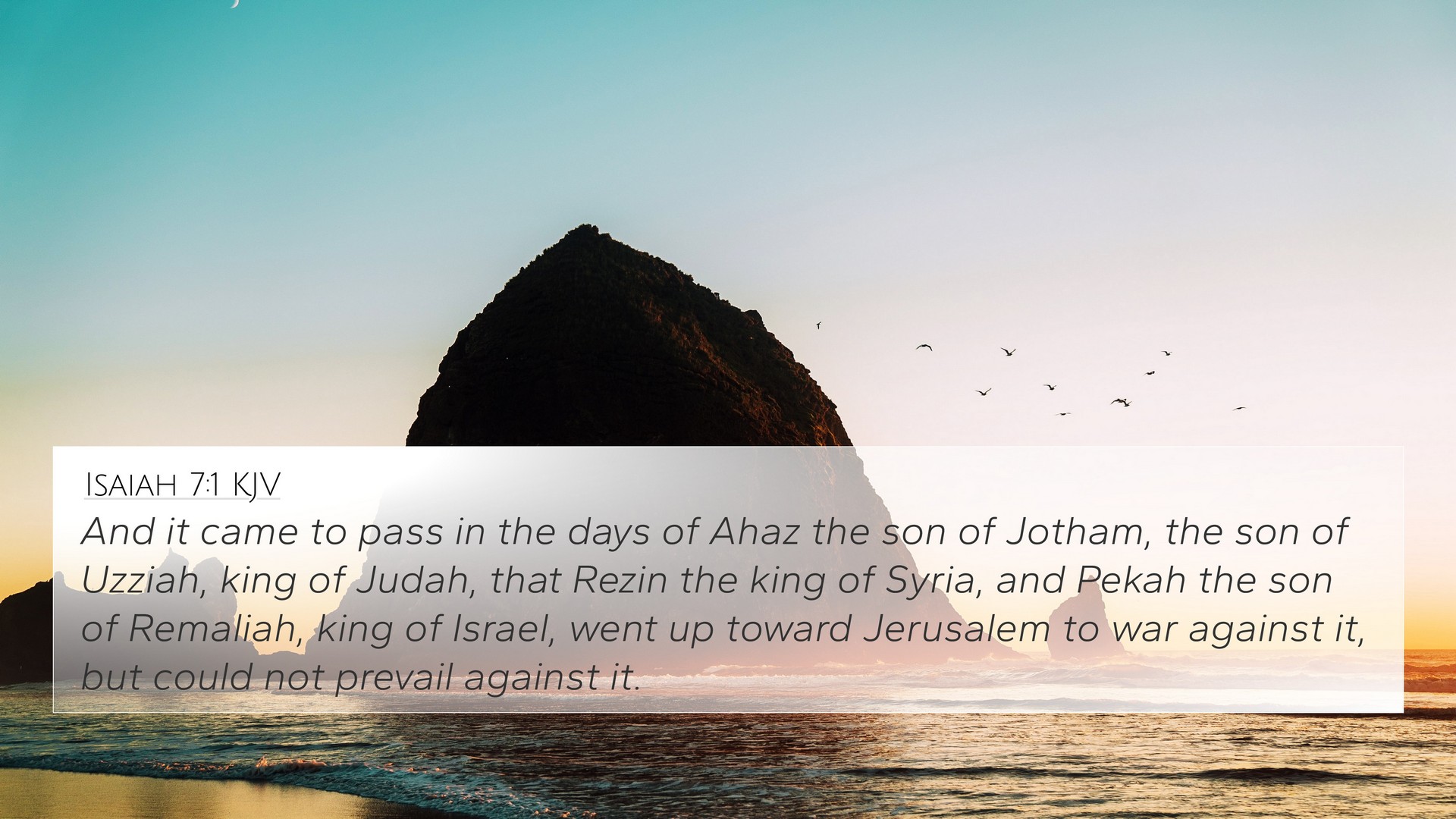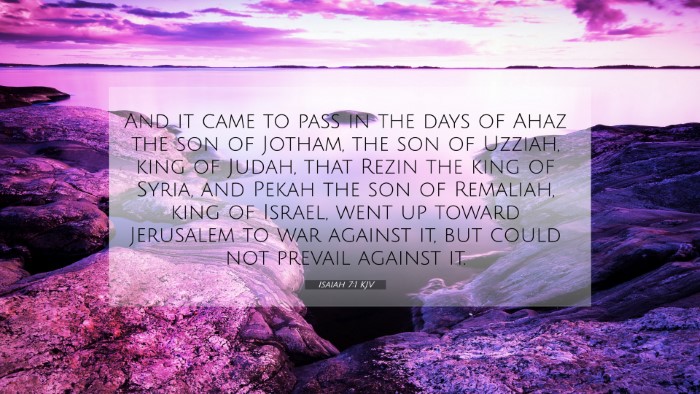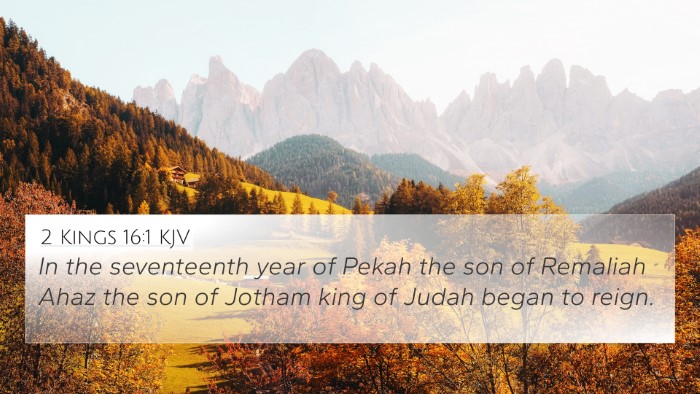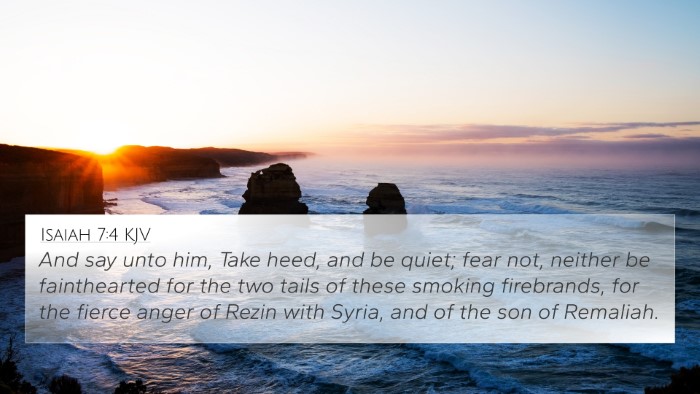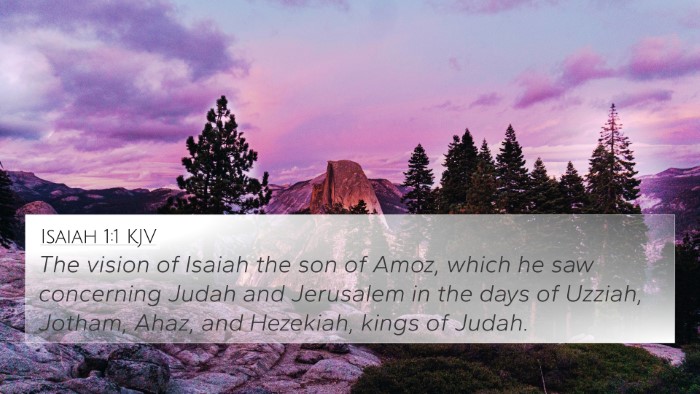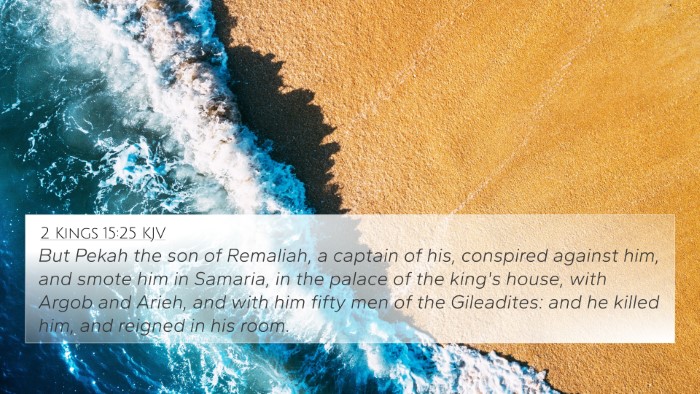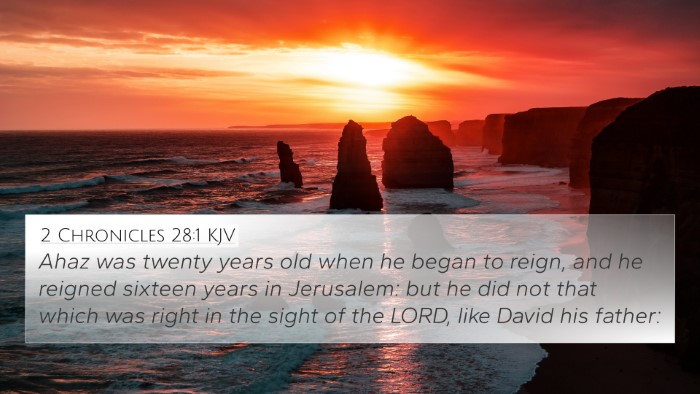Understanding Isaiah 7:1
Isaiah 7:1 is a significant verse set during the reign of Ahaz, king of Judah. This verse marks the beginning of a prophecy regarding the political turmoil in the region and the prophetic assurance God gives His people in times of fear and uncertainty.
Verse Context
Isaiah 7:1 states, “And it came to pass in the days of Ahaz the son of Jotham, the son of Uzziah, king of Judah, that Rezin the king of Syria, and Pekah the son of Remaliah, king of Israel, went up toward Jerusalem to war against it, but could not prevail against it.” This introduces a historical backdrop of conflict, detailing the alliance against Judah and setting the stage for God's intervention.
Commentary Insights
- Matthew Henry: Henry points out the significance of the political strife, emphasizing how divine prophecy prevails amid human conflict. He notes the encouragement provided to Ahaz by the prophet Isaiah, directing him to trust in God’s promise of deliverance.
- Albert Barnes: Barnes expands on the implications of the characters involved, particularly the wickedness of King Ahaz. He underscores the contrast between human schemes and God's protection, indicating that God uses the threatened war to demonstrate His power and sovereignty.
- Adam Clarke: Clarke contextualizes the verse within the larger narrative of Israel's history, focusing on the geopolitical implications. His commentary suggests that these events were not merely a political maneuver but a fulfillment of God's overarching plan for His people.
Thematic Connections
Isaiah 7:1 not only stands alone but relates to several themes throughout scripture. Here are some Bible verse cross-references that enhance understanding:
- Isaiah 8:4: This verse continues the narrative of impending disaster and prophecy concerning the Assyrian invasion and the implications for Judah.
- 2 Kings 16:5-6: This passage provides historical context, recounting the conflict faced by Ahaz as it aligns with the events described in Isaiah 7.
- Matthew 1:23: The prophetic significance of Isaiah is echoed in the New Testament, linking the prophecy of Immanuel to the events starting in Isaiah 7.
- Isaiah 9:6-7: These verses further the discussion of the messianic promise, showing how the turmoil leads to hope in a future king.
- Psalm 46:1: This verse speaks to God being a refuge and strength, resonating with the assurance given to Judah amidst conflict.
- Romans 8:31: Paul’s assertion that “if God is for us, who can be against us?” reflects the overarching theme of God’s protective hand shown in Isaiah.
- Hebrews 13:5: The promise of God’s presence assures believers of His support, paralleling the assurance given to Ahaz.
Applying Cross-Referencing Tools
To thoroughly understand Isaiah 7:1, engaging with tools for Bible cross-referencing is essential. These include:
- Bible concordance for locating similar themes and events.
- Bible cross-reference guide to find references that support the same theological implications.
- Techniques for comparative Bible verse analysis, allowing deeper understanding through links between Old and New Testament texts.
Conclusion
Isaiah 7:1 shows us how political strife can be intertwined with God’s providence. The verse powerfully captures a moment of tension for the people of Judah and serves as a reminder of the comfort and stability found in God's promises. By cross-referencing with other scriptures, we gain a wider understanding of God's plan and the assurance that He remains sovereign even in trying times.
Further Study
For those interested in diving deeper, consider exploring the following avenues:
- Identifying connections between Old and New Testament promises.
- Engaging in Bible cross-reference systems to enhance personal study.
- Participating in cross-referencing Bible study groups for a communal understanding of scripture.
